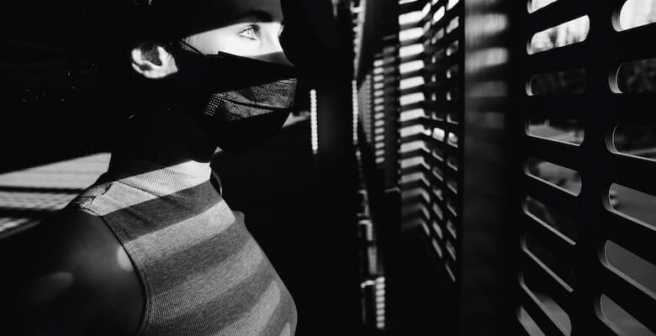Your Research. Your Life. Your Story.
A magnetic community of researchers bound by their stories
Every researcher has a story. What’s yours?
Perspectives from an early career researcher: Conducting research amidst the COVID-19 pandemic

I was a research assistant at the University of Queensland in Australia, starting my second year of working in animal health. I had just come back from Christmas holidays from my home country India, and I was ready to gain more skills and hopefully work towards a more permanent lab position.
At that point, as a casual technical officer my work involved processing diagnostic specimens, primarily from livestock, and developing new molecular assays for detecting antimicrobial resistance. I had an amazing work life with a wonderful supervisor and colleagues. Things seemed to be moving in the right direction and I was looking forward to making great strides in my career.
The pandemic threw me in the deep end and made me realise I could swim all along.
However, my joy and dreams were short-lived as news of the pandemic spread. Every day at work there were discussions about the implications it would have on university research and just a month later Australia and the whole world came to a stand still.
It was decided by my university that only essential staff could function. This meant most supervisors and students had to shift to work from home mode. The students that could come on occasion became my responsibility. I had been on the job for a year and was able to independently run experiments and do basic laboratory preparations. However, now I was solely responsible for managing the lab, inventory, reagent, and media preparation along with supervising and training students.The thought of having so many additional roles with no supervisor or senior colleagues around seemed daunting.
The pandemic had a huge impact on my work and social life, and even my mental and emotional health. From interacting with dozens of people on an every day basis, I now had little to no interaction with people, except my partner who was doing his masters project in the same lab at the time. It felt like working in a ghost town. Even regular lab meetings had to shift online and that became my social quota for the week.
There was global paranoia with the unavailability of essential goods, many people losing their jobs and a general fear of what was to come. But at a personal level, I was dealing with another uncertainty. On multiple occasions the question of retaining my position was raised in our lab, due to limited funding. The possibility of being laid off during such a crisis terrified me. How was I going to sustain myself? Would I be able to make rent? How do I tell my family? My fears faded since my supervisor valued my work and my contribution towards the continued functioning of the lab. For that I am grateful everyday.
Though things looked gloomy, somehow this was better than the year to come. Most students had completed their degrees in 2020 and left the lab. Sadly no new students were coming in due to border closures. The lab got even quieter and now I had even less people to interact with. Every day was the same – walking to an empty bus stop, waiting for a bus, and missing the bus as the driver would drive by assuming no commuters were going that way. On the days I was lucky, I managed to chase the bus down and get to work on time. Despite the vaccine roll out, it was a long year of waiting for people to return, to hear the lab buzzing with students, and have friendly banter with colleagues.
Now two years later, it seems a lifetime ago. Two years lost in fear, stress, grief and worry. When you recently graduate and enter the work force, you feel like the world is filled with endless opportunities. You never expect to be suspended in time, to be surrounded by anxiousness and looking to the adults for answers with the only problem being no one having them.
The pandemic threw me in the deep end and made me realise I could swim all along. These two years gave me the courage to take on a PhD, which I honestly never thought I had the potential for and it selfishly made me happy to know that as a scientist and researcher I am an essential part of society.
Although the pandemic impacted me on multiple levels, it has guided my thought process. I have become more pragmatic and dare I say even a bit cynical, but more importantly I am ready to be challenged and to push boundaries. I was never a confident person and always doubted my skills and abilities, but now I feel empowered and able to voice my thoughts and opinions without feeling inadequate. What I have realised is that life can throw you curveballs and you have to take them as opportunities to learn and grow. You may find that the person you become is the person you were always meant to be.
Comments
You're looking to give wings to your academic career and publication journey. We like that!
Why don't we give you complete access! Create a free account and get unlimited access to all resources & a vibrant researcher community.

Your Research. Your Life. Your Story.
A magnetic community of researchers bound by their stories






